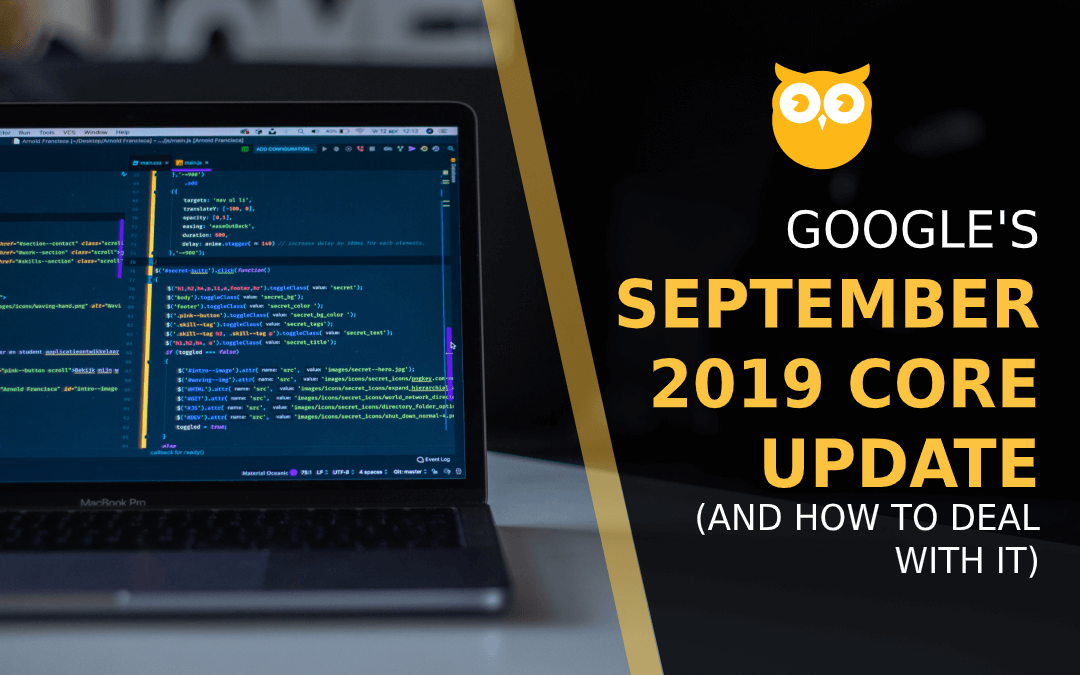Google just gave SEOs and webmasters a heads-up via Search Liaison regarding the rollout of another broad core algorithm update. Here is the tweet:
Later today, we are releasing a broad core algorithm update, as we do several times per year. It is called the September 2019 Core Update. Our guidance about such updates remains as we’ve covered before. Please see this blog for more about that: https://t.co/e5ZQUAlt0G
— Google SearchLiaison (@searchliaison) September 24, 2019
A few hours following said announcement, Google has posted that the September 2019 Core Update is now live. According to Danny Sullivan, Google’s Public Liaison for Search, it may take a few days for the update to fully roll out.
The September 2019 Core Update is now live and will be rolling out across our various data centers over the coming days. pic.twitter.com/DhJQ8AFUYL
— Google SearchLiaison (@searchliaison) September 24, 2019
This is the second time that Google preannounced a major update as part of its continuing efforts to be more proactive and transparent. The tech giant usually makes changes to their search algorithms every couple of months or so; however, right up until the June 2019 Core Update, notifications weren’t given prior to an update rollout.
Dealing with Google’s Core Updates
Google’s broad core updates are focused on reassessing the content presented to its users. Unlike the Panda and Penguin updates, core updates lean more towards rewards instead of penalties. It’s expected that the visibility and rankings of pages with low E-A-T content to be hit by a major update. Ranking drops don’t necessarily mean that your page was penalised: Google may have just found pages with better content, consequently giving them higher positions in SERPs.
What is Google’s E-A-T standard about?
One of the most important criteria for how Google rates a webpage’s quality is EAT, which stands for the following:
- Expertise – Your content should be produced with journalistic professionalism and attributes of accuracy, comprehensiveness, and clear delivery.
- Authoritativeness – Associate your website with other relevant expert sources by having both inbound and outbound links from them.
- Trustworthiness – Positive engagements driven by well-written content helps promote your website’s trustworthiness and integrity.
It’s important for a website’s content to have a high level of EAT because Google, when ranking webpages, rewards those that are beneficial to users. A website with content that is misleading, unoriginal, or does not achieve its purpose well will receive the lowest Page Quality rating from Google.
So what do you do when you’ve been affected by an algorithm update? Earlier last month, Google released guidelines about its core updates on the Webmaster Central Blog. Here’s a quick review of said guidelines:
- Core updates are about improving Google’s overall assessment system. Instead of targeting specific pages or sites, Google just looks for better content to rank on its search results pages.
- Sites that experienced visibility and ranking drops did not violate Google’s webmaster guidelines nor were they subjected to manual actions or penalties.
- Improvements do not guarantee recovery before the next broad core update is released.
- Nevertheless, while Google insists that there isn’t “anything to fix at all”, sites that have been negatively impacted should still work on producing the best content possible for a higher chance of recovery.
Google’s continuously tweaking its algorithms to provide the best possible user experience. Low-quality content has no place in Google’s search results pages. Make sure your website does not get left behind by producing content that has a very high level of EAT. We recommend revisiting the updated rater quality guidelines and asking yourself this set of questions from Google when you audit your website’s content.
